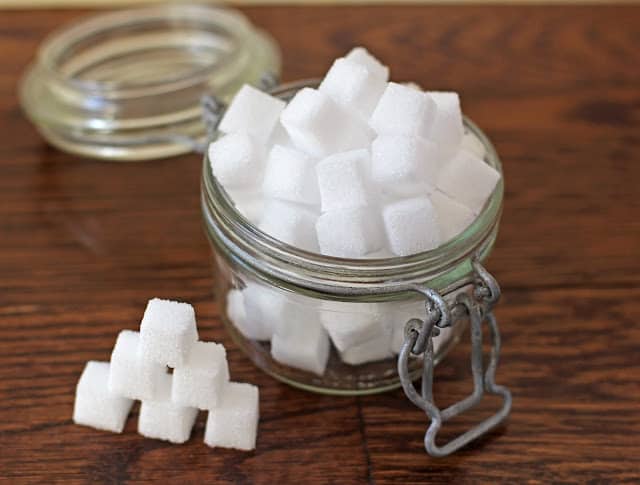Sweet in Every Language

There are words that have an ultimate common source from another language, but have found their way through different itineraries. Such is the case of the word sugar.
The sugarcane was originally from India. The soldiers of Macedonian conqueror Alexander the Great, after reaching India in the fourth century B.C., brought back to Europe “honey bearing reeds” that produced a product called sharkara (“ground sugar”) in Sanskrit, which they transcribed as ζάκχαρι (sacchari). The Indian product spread to different Asian regions and reached Iran, where it was called shakar. The word was borrowed straightforwardly from Persian into Armenian, where it first appeared in the seventh-century Atlas ascribed to Anania Shirakatsi as շաքար (shakar). Another Iranian language, Kurdish, borrowed it as sheker, which is the likely source for the Turkish word sheker.
However, the actual expansion of the sweet substance to the West occurred when Arabs began to cultivate it in Sicily and Spain, while the Crusaders did their part too. The Arabic word sukkar entered Europe and spread through various languages: Medieval Latin succarum, French sucre, Spanish azucar, Portuguese açúcar, Italian zucchero, and German Zucker. The ultimate source for English sugre > sugar was, most probably, the French language.
One of the many Voskeporik (Ոսկեփորիկ, “Miscellanea”), collections of useful and not-so- useful material of various origins compiled during the Middle Ages, included the following phrase quoted by the most important dictionary of Classical Armenian, the New Haigazian Dictionary of 1836-1837 published by the Mekhitarist Fathers: «Յիմաստուն ձեռացս ի՛նչ առնուս՝ շաքար է». Whether said in Classical Armenian or in Modern Armenian («Ինչ որ առնես իմաստուն ձեռքերուդ մէջ՝ շաքար է»), the phrase has not lost its eternal meaning: “Whatever you take in your wise hands, is sugar.” Sweetness comes with wisdom, at all times.
